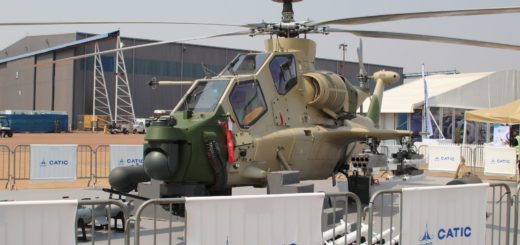Israel Negotiates Acquisition of U.S. JASSM Missiles to Strengthen F-35 Fighter Jet Air-to-Ground Strike Power

{loadposition bannertop}
{loadposition sidebarpub}
Citing information published by the Israeli financial newspaper Globes on May 4, 2025, Israel’s Ministry of Defense is reportedly in advanced negotiations with the United States to acquire the Joint Air-to-Surface Standoff Missile (JASSM), a highly advanced precision strike weapon developed by American defense giant Lockheed Martin. This development marks a significant step in enhancing Israel’s long-range strike capabilities and reflects the ongoing strategic cooperation between the two allies.Follow Army Recognition on Google News at this link
Lockheed Martin’s JASSM cruise missile, a stealthy air-to-ground weapon designed to destroy high-value targets from standoff ranges, is eyed by Israel for its F-35 fleet. (Picture source: U.S. DoD)
The JASSM (Joint Air-to-Surface Standoff Missile) is an air-to-surface missile designed to destroy high-value, fortified, and well-defended targets from a significant distance. It features a stealthy airframe and is armed with a powerful 450-kilogram (1,000-pound) warhead capable of penetrating hardened bunkers. Guided by a sophisticated dual-mode system that includes GPS and an infrared seeker, the missile is capable of operating in GPS-denied environments with high accuracy. It provides a decisive edge in modern air warfare with a standard range of more than 370 km and up to 1,000 km in the extended-range (JASSM-ER) variant.
This capability becomes exponentially more valuable for Israel when paired with its fleet of F-35I “Adir” stealth fighters. These fifth-generation aircraft, developed by Lockheed Martin and uniquely customized for Israeli operational needs, offer unparalleled stealth, sensor fusion, and electronic warfare capabilities. The JASSM is fully compatible with the F-35, and when carried internally, it preserves the aircraft’s low observable signature, allowing for precision strikes in heavily contested airspaces without detection. This integration would enable the Israeli Air Force to hit strategic targets deep within hostile territory while minimizing the risk to pilots and aircraft.
This potential acquisition is part of a broader pattern of deepening military-technical ties between the United States and Israel. The two countries have long maintained a close defense relationship, underscored by the U.S. Foreign Military Sales (FMS) program, through which Israel has procured a wide range of cutting-edge American military systems. The JASSM deal, if finalized, is expected to be processed through this channel and may also fall under the $3.8 billion annual military aid package stipulated in the 10-year Memorandum of Understanding signed in 2016 between the U.S. and Israeli governments.
The U.S. has consistently supported Israel’s efforts to maintain its qualitative military edge in the region. In recent years, this support has included the delivery of KC-46 Pegasus aerial refueling tankers, CH-53K King Stallion heavy-lift helicopters, and additional F-35I fighters. The addition of the JASSM to Israel’s arsenal would further enhance its ability to conduct precision strikes against time-sensitive and high-value targets—particularly important in scenarios involving Iranian strategic infrastructure or weapons stockpiles held by non-state actors like Hezbollah.
While neither side has disclosed the exact quantity of missiles under discussion, the strategic implications are clear. The JASSM’s standoff range, combined with its precision and low-observable characteristics, would significantly improve Israel’s ability to carry out long-range operations with minimal exposure. This capability aligns perfectly with Israel’s military doctrine of preemptive defense and strategic deterrence.
Ultimately, this move illustrates both Israel’s intent to maintain its air dominance and the strength of the U.S.-Israel defense alliance. As talks progress and potential contracts are finalized, defense analysts will closely monitor how this capability is integrated into Israel’s existing force structure and operational planning. The successful acquisition and deployment of the JASSM missile would not only enhance the Israeli Air Force’s operational reach but also reaffirm its position as one of the most capable and technologically advanced air forces in the world.

{loadposition bannertop}
{loadposition sidebarpub}
Citing information published by the Israeli financial newspaper Globes on May 4, 2025, Israel’s Ministry of Defense is reportedly in advanced negotiations with the United States to acquire the Joint Air-to-Surface Standoff Missile (JASSM), a highly advanced precision strike weapon developed by American defense giant Lockheed Martin. This development marks a significant step in enhancing Israel’s long-range strike capabilities and reflects the ongoing strategic cooperation between the two allies.
Follow Army Recognition on Google News at this link
Lockheed Martin’s JASSM cruise missile, a stealthy air-to-ground weapon designed to destroy high-value targets from standoff ranges, is eyed by Israel for its F-35 fleet. (Picture source: U.S. DoD)
The JASSM (Joint Air-to-Surface Standoff Missile) is an air-to-surface missile designed to destroy high-value, fortified, and well-defended targets from a significant distance. It features a stealthy airframe and is armed with a powerful 450-kilogram (1,000-pound) warhead capable of penetrating hardened bunkers. Guided by a sophisticated dual-mode system that includes GPS and an infrared seeker, the missile is capable of operating in GPS-denied environments with high accuracy. It provides a decisive edge in modern air warfare with a standard range of more than 370 km and up to 1,000 km in the extended-range (JASSM-ER) variant.
This capability becomes exponentially more valuable for Israel when paired with its fleet of F-35I “Adir” stealth fighters. These fifth-generation aircraft, developed by Lockheed Martin and uniquely customized for Israeli operational needs, offer unparalleled stealth, sensor fusion, and electronic warfare capabilities. The JASSM is fully compatible with the F-35, and when carried internally, it preserves the aircraft’s low observable signature, allowing for precision strikes in heavily contested airspaces without detection. This integration would enable the Israeli Air Force to hit strategic targets deep within hostile territory while minimizing the risk to pilots and aircraft.
This potential acquisition is part of a broader pattern of deepening military-technical ties between the United States and Israel. The two countries have long maintained a close defense relationship, underscored by the U.S. Foreign Military Sales (FMS) program, through which Israel has procured a wide range of cutting-edge American military systems. The JASSM deal, if finalized, is expected to be processed through this channel and may also fall under the $3.8 billion annual military aid package stipulated in the 10-year Memorandum of Understanding signed in 2016 between the U.S. and Israeli governments.
The U.S. has consistently supported Israel’s efforts to maintain its qualitative military edge in the region. In recent years, this support has included the delivery of KC-46 Pegasus aerial refueling tankers, CH-53K King Stallion heavy-lift helicopters, and additional F-35I fighters. The addition of the JASSM to Israel’s arsenal would further enhance its ability to conduct precision strikes against time-sensitive and high-value targets—particularly important in scenarios involving Iranian strategic infrastructure or weapons stockpiles held by non-state actors like Hezbollah.
While neither side has disclosed the exact quantity of missiles under discussion, the strategic implications are clear. The JASSM’s standoff range, combined with its precision and low-observable characteristics, would significantly improve Israel’s ability to carry out long-range operations with minimal exposure. This capability aligns perfectly with Israel’s military doctrine of preemptive defense and strategic deterrence.
Ultimately, this move illustrates both Israel’s intent to maintain its air dominance and the strength of the U.S.-Israel defense alliance. As talks progress and potential contracts are finalized, defense analysts will closely monitor how this capability is integrated into Israel’s existing force structure and operational planning. The successful acquisition and deployment of the JASSM missile would not only enhance the Israeli Air Force’s operational reach but also reaffirm its position as one of the most capable and technologically advanced air forces in the world.






